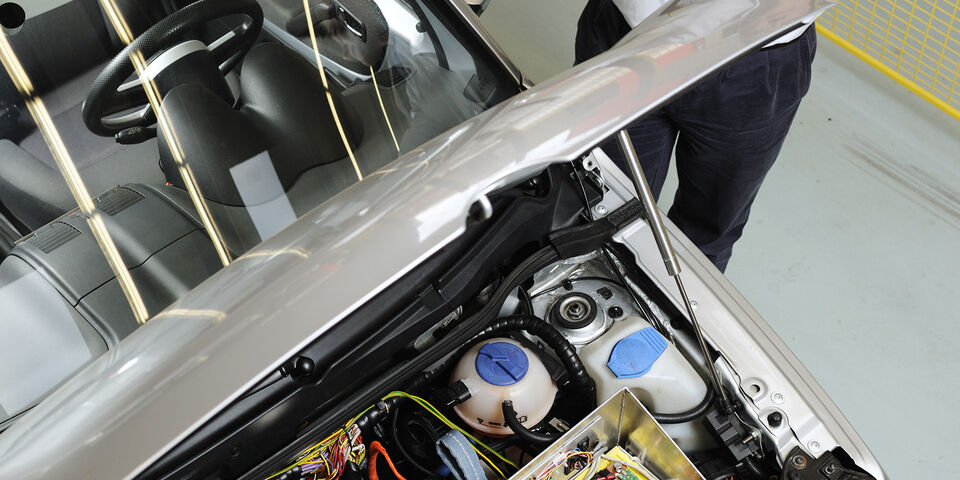Car of the future: electric or hydrogen?
Last week, with a lot of fuss, Hyundai announced the big news: by the end of the year they want to start producing a hydrogen car, the new ‘car of the future’. Wasn’t the electrical car supposed to be just that a few years back? The big question is whether the hydrogen car will catch on with consumers, or if we’ll be facing practical problems once again, like a charging station shortage. And what are supposed to be the main advantages of hydrogen cars over electric ones, anyway?
“We have to realize a hydrogen car is an electric car as well, the only difference being that with the former, most of the energy is transported as hydrogen rather than a charged battery”, Igo Besselink explains. Along with some of his colleagues from the Dynamics and Control group, he presented the Lupo EL last year, an electric car and one of TU/e’s showpieces. “The hydrogen car was considered the car of the future ten years ago already. Arnold Schwarzenegger used to flaunt his ‘green’ hydrogen-powered Hummer, posing for pictures everywhere. The problem concerning the short lifespan of the fuel cell – initially it didn’t even last 5,000 hours – has been solved by now, but the availability of hydrogen and how to make it is still a serious issue. It’s a lot easier to just plug in your car at home.”
“Extracting hydrogen from natural gas is a fairly efficient process compared to other available methods. Then again, you might as well drive a car that runs on natural gas – less hassle, same level of CO2 emission. There’s been a lot of discussion regarding renewable energy like solar and wind power, but even in that respect the electric car outplays the hydrogen car. Driving a Lupo EL for one year, you’d need about twenty square meters of solar panels. For a similar car running on hydrogen, you need three times as many. That’s a big difference. So in fact, the hydrogen car isn’t that efficient and sustainable at all.”
“A hydrogen car can easily drive for four hundred kilometers on end, while electric cars need charging after about a hundred kilometers. Charging the battery of an electric car may take several hours, but a hydrogen car is ready to go in no time. The time it takes for the car to be filled up again is the one major advantage of the hydrogen car. Then again, the only hydrogen station is currently located in Arnhem, so that’s an issue for people living in Eindhoven. For me, the ‘original’ electric car is still the car of the future. The Ministry of Infrastructure and the Environment recently showed that people with electric cars are more and more satisfied with their vehicles. The number of electric cars sold is still rising, so why would the media report negatively about them? The charging station in front of Built Environment is in use all the time!”


Discussion